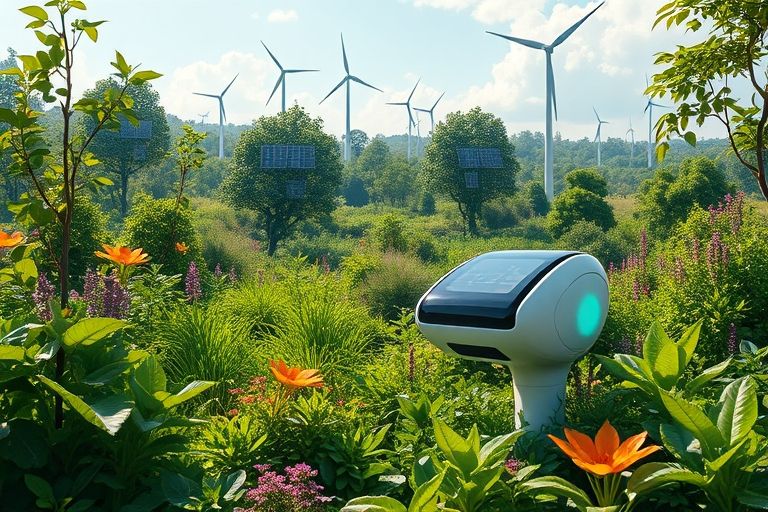
Artificial Intelligence (AI) is a rapidly growing field that has the potential to revolutionize many aspects of our lives. One area where AI is already making a significant impact is in promoting sustainable development. By using AI to optimize processes, reduce waste, and promote eco-friendly practices, we can create a more sustainable future for ourselves and for the planet.
There are many examples of how AI is being used to promote sustainable development. One example is the use of AI in agriculture. By analyzing data on weather patterns, soil conditions, and crop yields, farmers can use AI to optimize their farming practices, reduce waste, and increase yields.
Another example is the use of AI in transportation. By analyzing traffic patterns and optimizing routes, AI can help reduce congestion and emissions, making transportation more eco-friendly.
AI is also being used in energy production. By analyzing data on energy usage and production, AI can help optimize energy grids, reduce waste, and promote the use of renewable energy sources.
If you're interested in using AI to promote sustainable development, there are a few things you can do. First, you can start by researching the different ways AI is being used in your industry and identifying areas where it could be applied to promote eco-friendly practices.
You can also work with AI developers to create custom solutions for your specific needs. By working with experts in AI development, you can create solutions that are tailored to your business and that are designed to promote sustainable development.
AI has the potential to revolutionize many aspects of our lives, including promoting sustainable development. By using AI to optimize processes, reduce waste, and promote eco-friendly practices, we can create a more sustainable future for ourselves and for the planet.